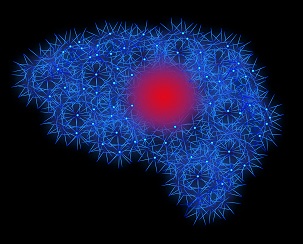Regaining autonomy after a stroke – a major health challenge

Related topics
Health ICT Research & Innovation Innovation Health, Demographic Change and Wellbeing Austria Germany Italy Luxembourg Netherlands Spaindate: 13/03/2014
Project: An individually adaptable, BNCI-based, r...
acronym: CONTRAST
See also: CORDIS
Contact: Contact
The CONTRAST project aims to bridge the gap between the institutional rehabilitation and the continuous training and monitoring of the impaired function and health parameters at home for stroke patients.
The incidence of stroke increases with age, and from age 55 to beyond 85 in men and 65 to beyond 85 in women, the incidence increases proportionately with every decade of age. In the year 2000, 16% of Germany’s population was older than 65. Due to demographic changes, this percentage is expected to rise to 33% by the year 2030. These figures are similar in other western European countries and pose a challenge to all health systems and institutional care. It is thus evident that improving daily functioning after stroke, which includes the improvement of cognitive functions and the monitoring of health and social parameters, is a timely and critical task. These improvements will help stroke patients enjoy a life that is as independent as possible in their home environments.
After a stroke, most patients are confronted with two important types of impairment. Firstly, they may experience severe cognitive problems, such as difficulties with attention, memory, language, learning, reasoning, problem solving or decision-making; and secondly, they may have to deal with severe motor impairment.
Both aspects may increase their dependence on other people, prompting feelings of lost autonomy and helplessness, and this often accelerates the development of depression. Early interventions to maintain or restore independence, which is linked to better well-being and overall management of daily life, is therefore, of paramount importance.
Providing efficient and innovative rehabilitation at home
Unfortunately, a huge gap exists between institutionalised rehabilitation and management of stroke-affected people in their home environments. Rehabilitation efforts mostly terminate abruptly when patients are discharged from hospitals, and so do efforts to monitor any changes in motor and cognitive function, daily life activities in social integration, health parameters (e.g. heart rate, blood pressure) and quality of life.
CONTRAST bridges this gap by developing easy-to-use auto-adaptive human-machine interfaces (HCI) for better cognitive function and psychological well-being, which can be used in the sub-acute rehabilitation phase and at the patients’ home. This is achieved by so-called neurofeedback training. Neurofeedback training involves the recording of the neuronal activity of the brain with EEG (electroencephalography) and feeding it back to the user in real time. This allows a person to learn how to alter their EEG, which then can improve cognitive functioning. Training modules are tailored to the individual and remote data processing and support systems are now designed to allow for continuous monitoring of health parameters to evaluate individual progress and for shared patient-expert decision-making.
CONTRAST’s core interventions to improve the recovery after stroke are training modules, which address attention and memory. Nevertheless, psychological well-being is also an important target of intervention, since depression is frequent after stroke and hampers cognitive function, and functioning in daily life. Therefore, CONTRAST provides accurate, adaptive, individually tailored interventions to improve both cognitive function and affective state.
An inter-disciplinary project consortium
CONTRAST is a collaborative scientific project supported by the European Union for the "Cognitive Enhancement Training for Successful Rehabilitation After Stroke”. Consortium partners include academic and clinical experts from disciplines such as clinical psychology, neuropsychology, neurology and psychophysiology. By bringing together a multidisciplinary team including universities, companies, hospitals, rehabilitation centres and user groups, CONTRAST combines the expertise from all relevant stake-holders, i.e. academics, clinicians and patient organisations.
The members of the team are uniquely qualified to achieve the aims of this project as they have long-standing expertise in key research areas, such as neuropsychological assessment, bio- and neurofeedback, cognitive training with patients after stroke, telemonitoring, supervision, home support, product development and dissemination practice, necessary for the success of CONTRAST. In addition, they represent a cross-section of EU countries with partners in Luxembourg, The Netherlands, Germany, Austria, Spain and Italy. This ensures input from countries with different healthcare systems, which will help to contribute to a more harmonised, cutting-edge approach to rehabilitation after stroke.
